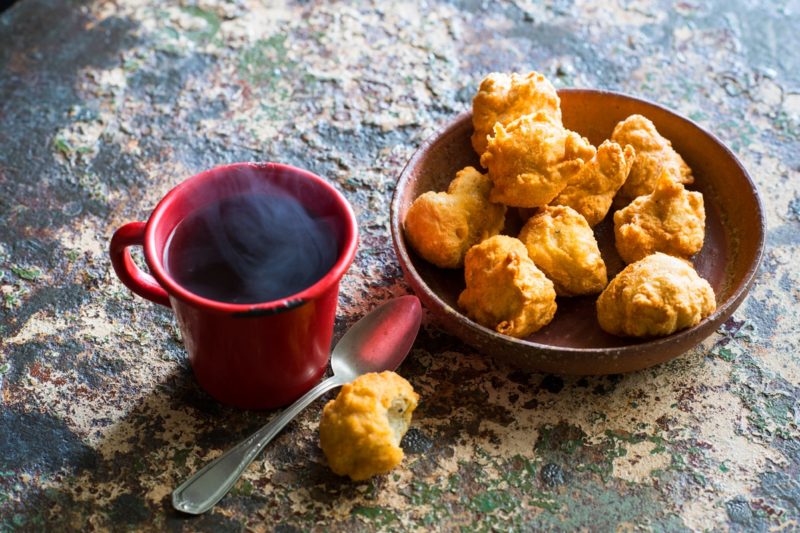Everyone’s mornings in my extended Newari family household turn ebullient when my mother yells “Hajurama le gwaramari lyaunu bhayeko cha” which translates to “Grandmother has brought gwaramari.” These fried dough balls somehow made waking up early easier for me in my high school days.
Gwaramari, the word, is made up of two Newari words: ‘Gwara’, which translates to round, and ‘Mari’, which means bread. These round-shaped little pieces of bread are a popular choice for breakfast in the Newari communities. These delights are available around the Kathmandu valley in its sweet and tea shops, alleys and streets, commonly sold for the price of just two rupees per piece.
These breakfast delights are always made early in the morning. So, if you want to have it while it’s best served (hot), you have to wake up early. With the crunchy outer part and the airy-dough on the inside, gwaramari can be enjoyed all by itself. However, most people eat gwaramari with a hot cup of milk tea.
If you are looking to prepare gwaramari, the recipe is quite easy. The catch is you have to start one day ahead of the morning you would like to have these as breakfast. The ingredients needed are plain flour (250g), salt (1tsp), cumin (1tsp), baking soda (1tsp), water (250ml), and vegetable oil (1 litre), and all of these are most likely already in your kitchen.
You start by mixing the plain flour with a spoonful of baking soda, salt, and cumin, each. In the mixture, slowly add water while stirring, until the mixture becomes a thick batter. You can cover the batter and leave it overnight. The next morning, heat the vegetable oil in a wok until it’s hot enough. When the oil is hot, make small balls of the batter and drop it into the oil. Fry until the balls turn golden brown. Then, remove the crispy gwaramaris from the oil and rest them on a paper to drain the excess oil. Once, the gwaramaris have cooled down just enough, you can serve them hot.
Now, if you are like me and do not have the patience to cook, you can find these balls easily in the early mornings in the tea and sweet shops around Kathmandu valley.

Hey, I am Khusbu. And I write about the themes that I am passionate about or just random topics that spark my interest. Here, I try to express my learnings and my experiences. By writing, I aspire to learn and voice my thoughts. And I hope that by reading, you will learn a thing or two too.

